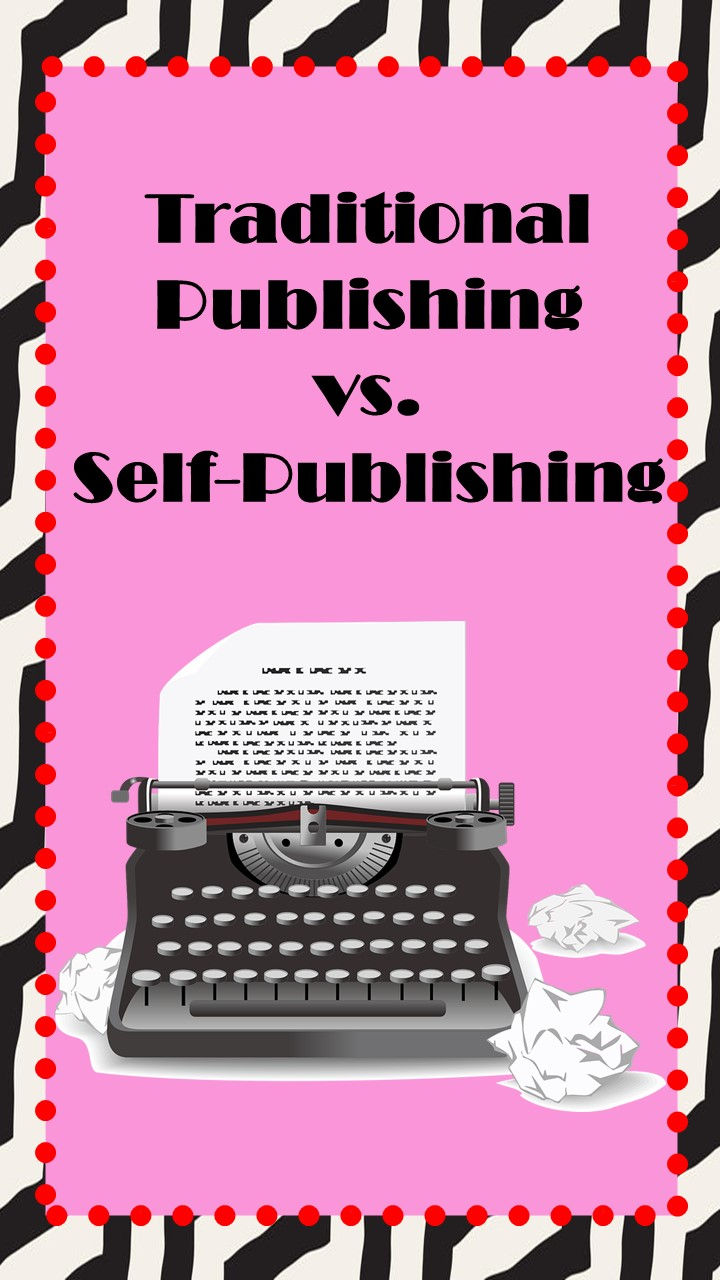I get a lot of shocked, disappointed looks when I tell people that I plan to self-publish. I usually get the following questions and comments:
“Won’t traditional publishers market the book better?” “No one is going to take you seriously.” “You’d never get a movie deal.” “J.K. Rowling toughed out getting rejected, why can’t you?”

I remember being in college and chatting with other writing students about the best ways to submit work, query agents, etc. Now this type of thing isn’t even on my radar. I could go on for days about why I plan to self-publish, but here are two big reasons:
#1. Royalties
Let’s get the most obvious out of the way – self-publishing provides you with better royalties. Most traditional publishers offer well under 20% royalties, whereas Amazon alone offers up to 70%.
Also worth considering: would you buy an $8.99 e-book? Hells no! A trad publisher is going to price high despite the cost warding off potential customers. They still just don’t get the importance of the digital revolution. This is disruptive innovation, people!
As a self-publisher, you can set your own prices, too, thus controlling your market better. $4.99 too high? You can offer the book for $3.99. You don’t have to fight with anyone who has to bring the suggestion to their boss and up the food chain…
Then later you can offer it for $2.99 on sale to bolster reviews (which matter a lot in ranking). Hell, it’s recommended to give books away for free for a bit to get people acquainted with you. You think a traditional publisher will agree to that?
Trad publishers are good at selling paper, but in a world where bookstores might as well be considered novelty shops, does this matter? Can you pick out self-published books from Amazon thumbnails alone?
“But,” you say, “traditional publishers market better! Quality alone will be telling!”
Strap in… The truth isn’t pretty.
#2. Anyone can be a marketer
… and a traditional publisher will expect you to be one no matter what. Often times, authors still have to hire their own publicists, buy ads, and drum up excitement. Traditional publishers focus their efforts on maximizing sales with established authors, so you aren’t going to gain as much of their time as you’d expect. This entire process can be costly.
Factor in the 12-18 months it takes to publish with a traditional publisher, and there’s also a lot of opportunity cost involved. You’re not earning profits during that time. While your Big 6 (Big 5? Pretty sure one has already gone out of business or merged) publisher is dragging its feet on editing, interior and exterior design, ad creation, etc., you could have been earning royalties and creating a name for yourself.
Anyway, don’t you want to have some say in the professionals hired and the work that they do? With some research, you can track down the designers trad publishers use, anyway.
Other authors, friends, and editors-for-hire will criticize your book just as much as a publisher's contacts will.
(Sidenote: I’m currently reading The Twelve by Justin Cronin. Solid book so far, but I found a glaring typo within the first 120 pages. All the people who supposedly read over texts? All the gates books pass through before publication? … You’d think they would find a typo. This isn’t to say that Cronin had bad editors and proofreaders – I’m anal. But it goes to show that publishing staff are tired at the least.)
J.A. Konrath described in his blog why he thinks everyone should self-publish and it’s a really interesting read, especially coming from someone who has had success in the traditional publishing industry.
Traditional publishing earned a lot of prestige in the past. At one point in time, it was necessary to use a publisher. As tides started to change and self-publishing became more possible, the gatekeepers snubbed it – and they could. They could laugh, they could fight, they could see their own successes and win the argument.
Such is no longer the case, and anyone holding onto the belief that traditional publishing is the only respectable option needs to re-educate themselves. At the very least, self-publishers ought to be viewed as exactly who they are: hard-working, respectable entrepreneurs.
Looking for a new bestseller fiction novel to read? For a limited time you can get 40% off at Barnes and Noble!
This blog contains affiliate links. If you click on a link and purchase an item, I may receive a commission. But don't worry - you won't pay a penny more! The money I receive helps me keep the lights on, so thank you!
Comments